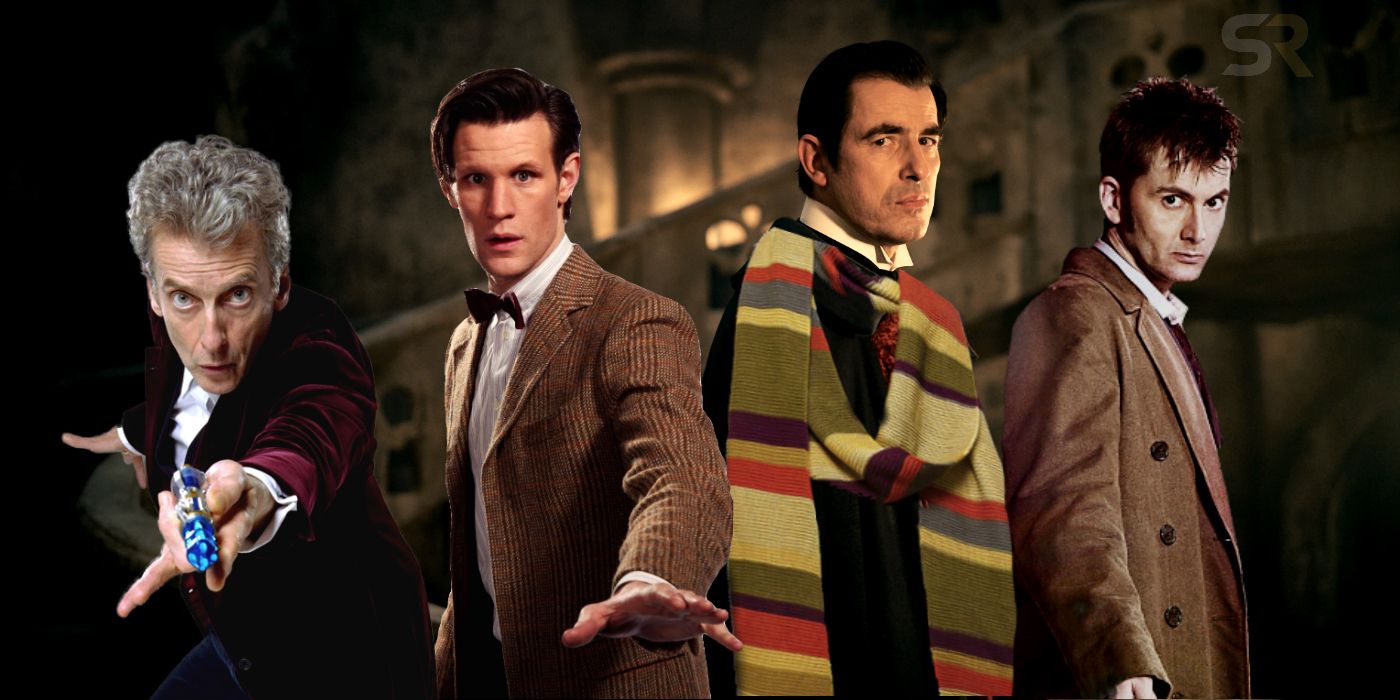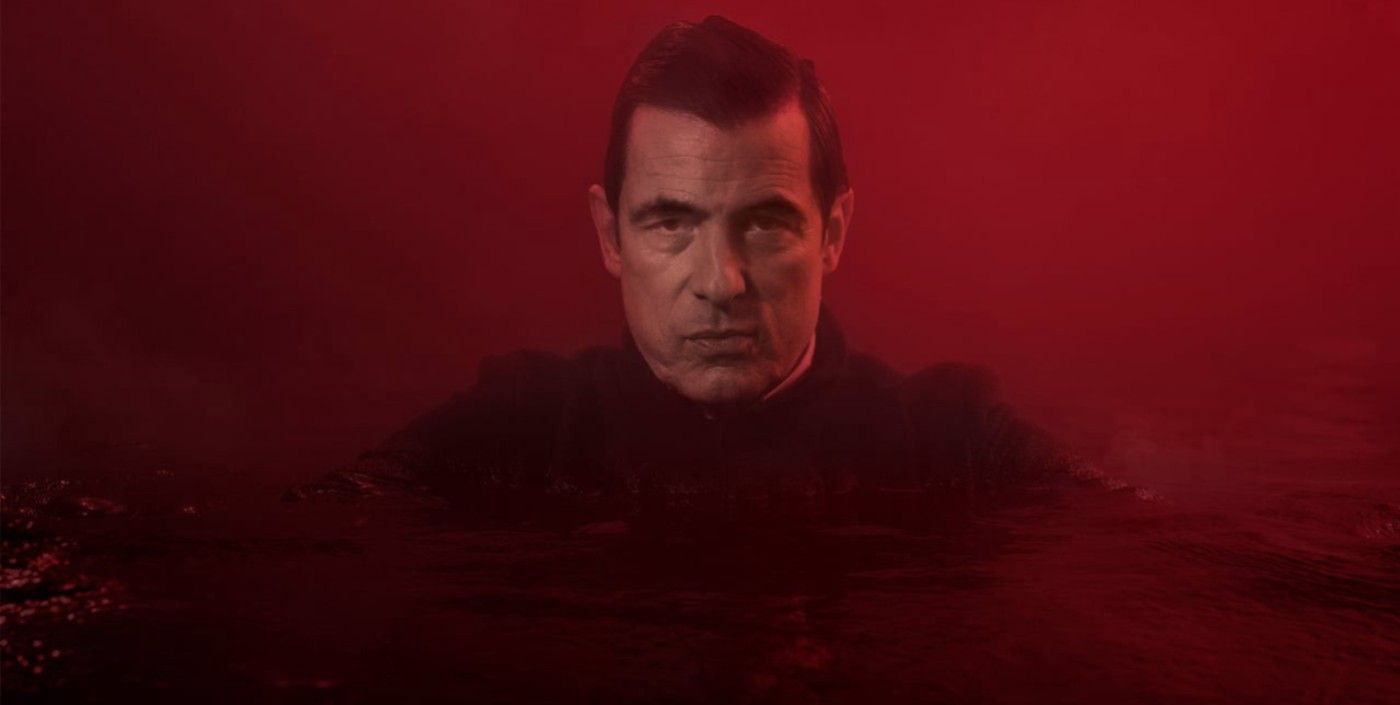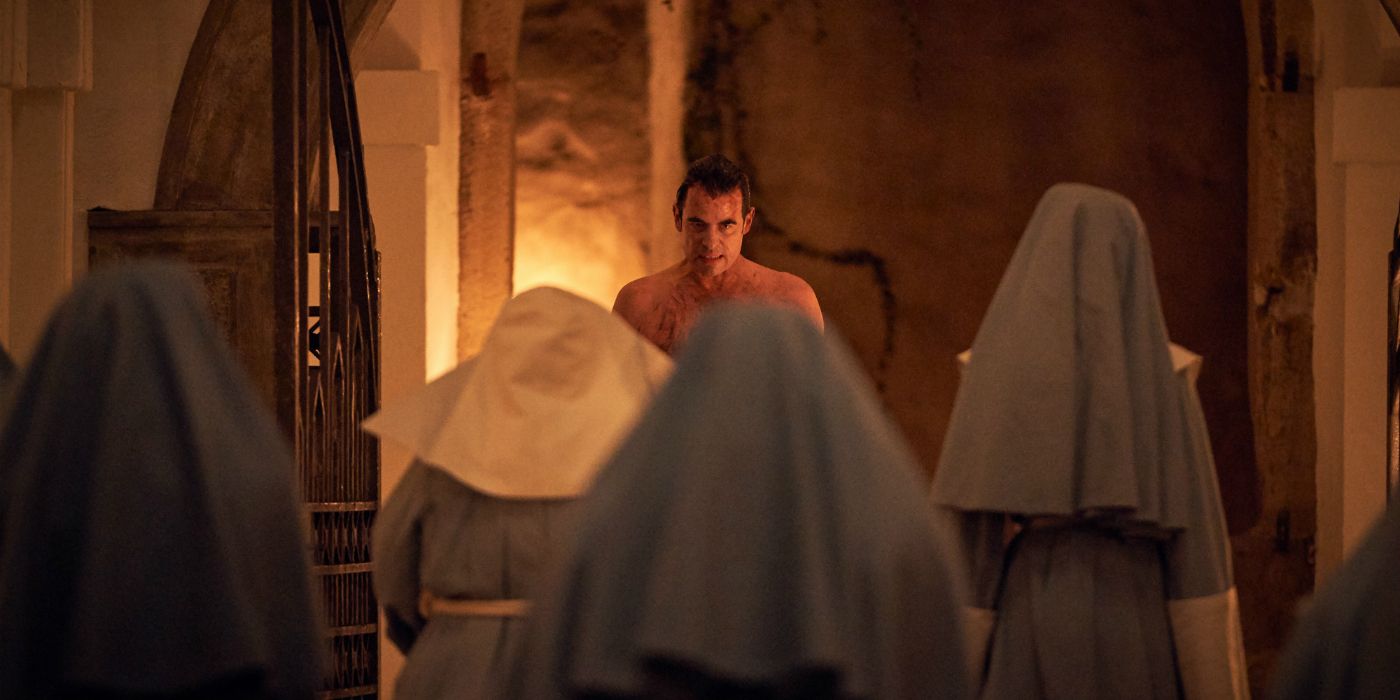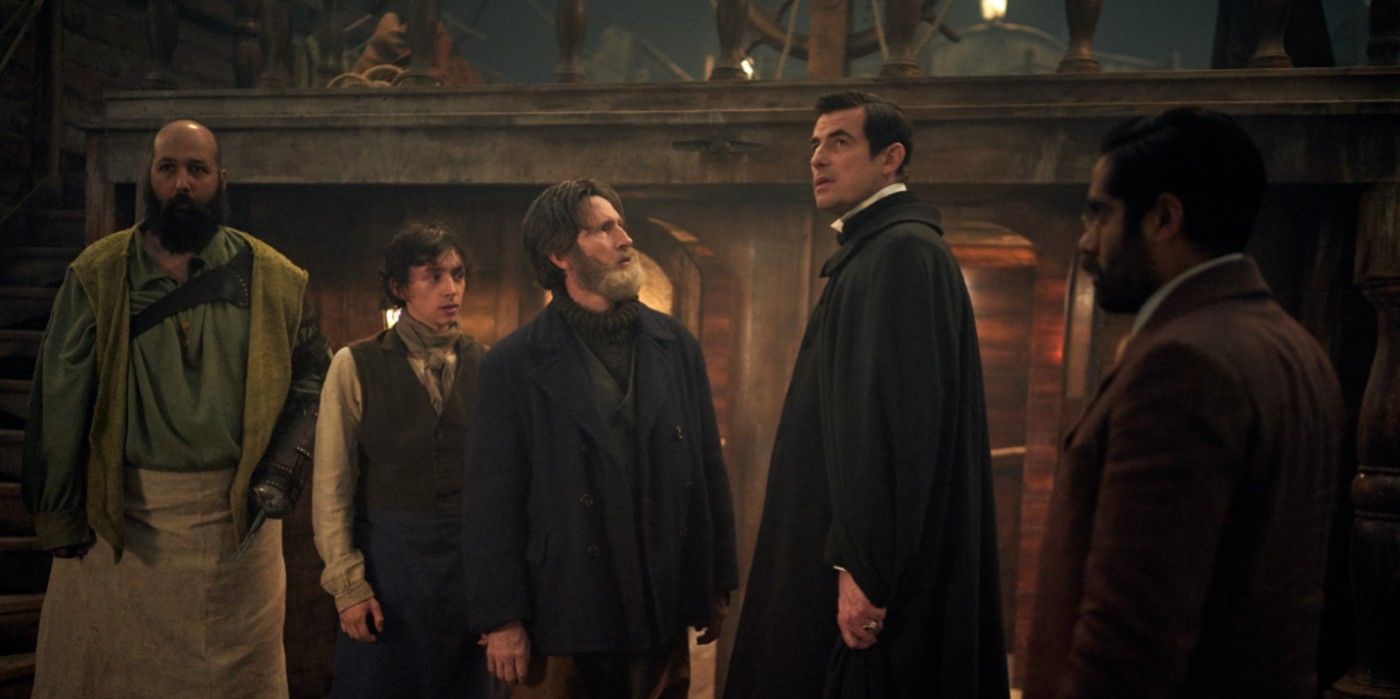
Although Steven Moffat stepped down as the showrunner of Doctor Who in 2015, his newest series, Dracula, clearly borrows from his time with the Timelord.
Steven Moffat’s time at Doctor Who was controversial. While he did create some of the best monsters in the canon, he also made several character and plot choices fans disapproved of. When it was announced he would be teaming up with Mark Gatiss to create a new adaptation of Bram Stoker’s classic vampire novel, Dracula, it was uncertain what elements of writing he would bring with him.
While Dracula begins at the turn of the 20th century, the third episode, “The Dark Compass”, brought the show firmly into the modern era. Dracula’s (Claes Bang) journey to England has, inadvertently, been delayed by over a century. Although most secondary characters only last one episode, Dracula and Sister Agatha Van Helsing (Dolly Wells) and her familial line span all three. A time skip like this immediately conjures the time-traveling Doctor.

Dracula, being unable to die, invokes the same larger-than-life persona that defines the Doctor. The Doctor treats peril as casually as one might approach a riddle. In Dracula, the vampire’s immortality lends him an air of indifference, amusement even when faced with the death of others. Like the Doctor, he makes casual references to important historical figures as proof of both his tenure and value on Earth.

Every Doctor under Moffat has expressed a love for public speaking. These speeches are grandiose; they demand the attention of a wider world that poses a threat to them, but the speaker always remains cool and collected. Matt Smith has his “Look at me. I am talking” speech in season 5, episode 12, “The Pandorica Opens”, as well as his tongue-in-cheek posturing in front of Daleks in season 5, episode 3, “Victory of the Daleks”, in which he pretends a Jammie Dodgers biscuit is a weapon. Season 9, episode 1, “The Magician’s Apprentice”, sees Peter Capaldi playing it cool with sunglasses and an electric guitar. In Dracula, Whovians recognize this tendency in Sister Agatha as she explains to a naked and bloody Dracula how she was prepared for him all along. She shows no fear in the face of his threats, more focused on explaining her own machinations than responding to him.

Steven Moffat’s “Smart Man” always possesses certain characteristics. He is intelligent, highly intelligent. That makes him arrogant, usually justifiably so. He quips; he always has a comment prepared, and it is always devastatingly clever. This is as noticeable in The Doctor as it is in Sherlock (Benedict Cumberbatch) from another Moffat-run show, and now in Dracula. The vampire speaks quickly in his address of Jonathan Harker (John Heffernan), flitting from comment to comment without hovering on anything too long. “You’re a monster,” Jonathan says. “And you’re a lawyer.” Dracula retorts, “Nobody’s perfect.”
Critics of Moffat have been quick to point out the writer’s failings in creating female characters. Although certain women in Dracula, such as Lucy Westenra (Lydia West), suffer from some of the showrunner’s usual pitfalls, Van Helsing is a breath of fresh air. The change in gender of the vampire’s foil works thanks phenomenal acting on behalf of Wells. Van Helsing expresses many of the characteristics of Moffat’s “Smart Man” as well: she is sharp, witty, and utterly certain of her own abilities. Although Netflix’s Dracula has so far been met with mixed reviews, its inspiration in Doctor Who is well-founded, both borrowing what fans loved and evolving what fans didn’t.
from ScreenRant - Feed https://ift.tt/39MIpEH

0 Comments